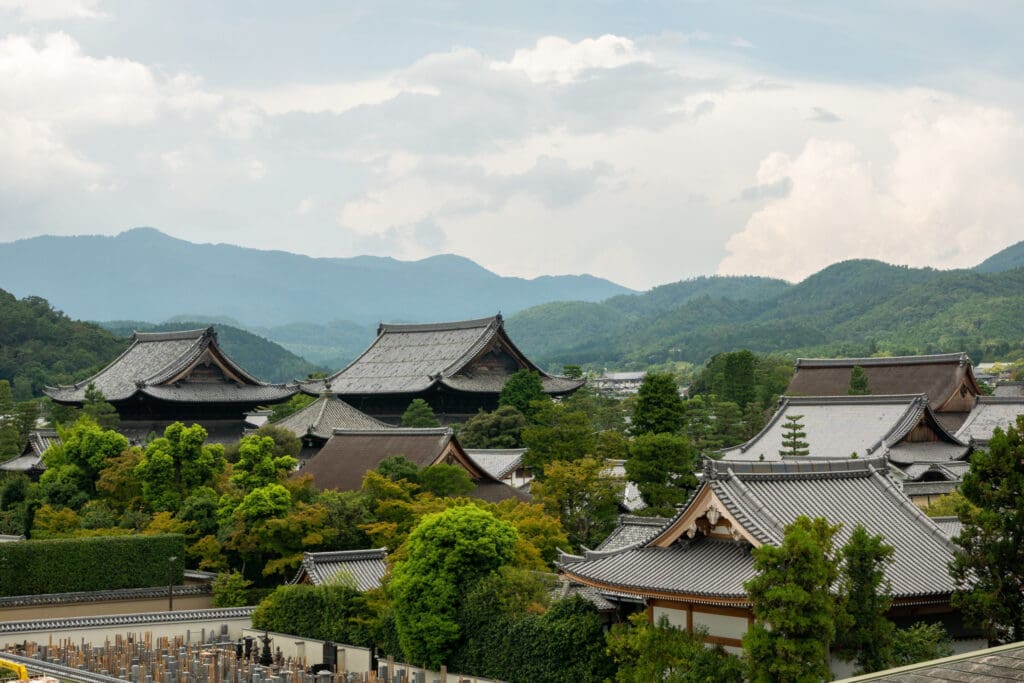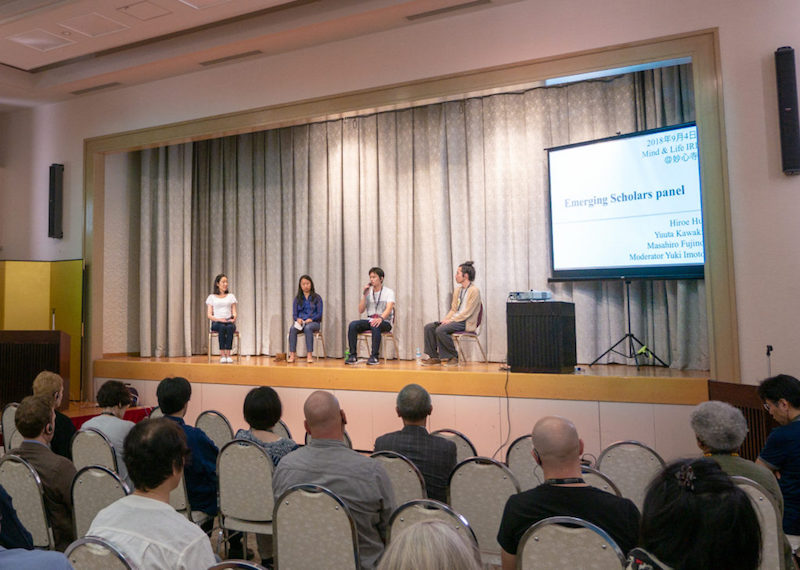Attending Mind and Life’s first-ever International Research Institute (IRI) in Kyoto, Japan, was a career highpoint. The event bridged my past and present, my current studies in the U.S. with my roots in Japan, and my interest in exploring the connection between mind and body.
Quite simply, I felt at home.
As a child, I went on field trips to Buddhist temples, but never really appreciated them. That all changed years later within the awe-inspiring setting of Myōshin-ji, a 14th century Zen temple complex typically reserved for monks, yet made available to IRI participants to explore the theme of “Contemplative Practice in Context: Culture, History, and Science.”
I left Japan to pursue my undergraduate degree at Brown University. My thesis investigated the similarities—and differences—between contemporary mindfulness-based psychotherapy and Morita therapy, with its focus on promoting awareness and acceptance of thoughts and feelings. When I finished the paper in 2013, I could only dream of presenting it at a conference. With contemplative studies, let alone cross-cultural approaches to such studies, newly-emerging at the time, such platforms didn’t exist.
Back then, it occurred to me there should be more explicit communication among the contemplative community and scholars in the West; their counterparts in Japan, many of whom had imported mindfulness practices from the West; and traditional contemplative practitioners in Japan. From this perspective, the Kyoto IRI was long overdue and a source of great personal satisfaction.
Being in the same physical space as scholars and researchers from Japan, along with other nations in Asia and beyond, was life-changing. I was able to connect with both senior and emerging scholars who shared similar interests. The experience helped validate our eclectic yet ground-breaking fields of study, paving the way for future collaboration.
The most meaningful moment during the IRI was presenting in the Emerging Scholars Panel and getting to know fellow young Japanese scholars in contemplative studies. The four of us formed a special bond, and I have no doubt our paths will cross in the future.

As a fourth-year medical student studying psychiatry, the conference also deeply influenced how I look at my work and future goals. Particularly memorable was the contemplative arts night. To date, the field of contemplative studies has been dominated by scientific voices, viewed as critical to validating knowledge. But as contemplative scholars, we must not forget that creativity is vital to the human condition. Senko Ikebono’s lecture on the philosophy and practice of ikebana, the Japanese art of flower arranging, made me realize that the field of contemplative arts is underrepresented.
As my career progresses, I look forward to finding ways to integrate clinical science with the contemplative arts, with the goal of helping those who are suffering find liberation through creativity.
The longer I spend in the United States, the longer I realize how Japanese I am in certain respects. I find it striking that in Japan mindfulness therapies are being imported from the West, leading me to wonder how many Japanese people don’t realize that these practices are inherent within our culture. Events like the IRI have an invaluable role to play in fostering much-needed international dialogue—and awareness of what we share in common across time and culture.




